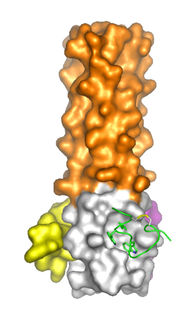Proteo Biotech AG Signs an Exclusive License- and Collaboration-Agreement with Artes Biotechnology GmbH
Leading Technology for the Recombinant Production of Elafin Worldwide Secured
Advertisement
Proteo Biotech is producing its Elafin with the patent protected yeast strain Hansenula polymorpha on a recombinant basis for a world market. PROTEO has signed an exclusive License- and collaboration agreement with ARTES Biotechnology GmbH.
,,This agreement will enable us to produce Elafin, in a large scale, very economically by using the in-licensed yeast Hansenula Polymorpha as an high performance expression system. The License- and Collaboration Agreement is an important milestone on our way to world markets and a sustainable development of the company", so Walter J. Thomsen, CEO of Proteo.
,,The commercial use of the Hansenula Technology by Proteo is an additional confirmation for the safety and efficiency of our expression system", so Dr. Michael Piontek, CEO of ARTES Biotechnology. Proteo's Elafin is of human origin and is one of the most potent inhibitors of human elastase and proteinase 3, and therefore a compound with high biological activity and with less unforeseeable side effects and insignificant allergenic potential compared to most synthetic alternatives.
The results of pre-clinical trials, shows great promise in the treatment of tissue and muscle damage. Elafin reduces damage to heart muscles caused by blood supply deficiencies. This indicates its applicability in the treatment of cardiac infarction. According to the results of pre-clinical trials performed, Elafin reduced extremity damage caused by blood supply deficiencies. This indicates its suitability as a special drug to prevent amputations after serious injuries. Elafin had a similar effect on transplanted hearts, indicating its suitability as a drug to prevent rejections following a transplantation. Further application are being tested.
Most read news
Organizations
Other news from the department business & finance

Get the life science industry in your inbox
By submitting this form you agree that LUMITOS AG will send you the newsletter(s) selected above by email. Your data will not be passed on to third parties. Your data will be stored and processed in accordance with our data protection regulations. LUMITOS may contact you by email for the purpose of advertising or market and opinion surveys. You can revoke your consent at any time without giving reasons to LUMITOS AG, Ernst-Augustin-Str. 2, 12489 Berlin, Germany or by e-mail at revoke@lumitos.com with effect for the future. In addition, each email contains a link to unsubscribe from the corresponding newsletter.
























































